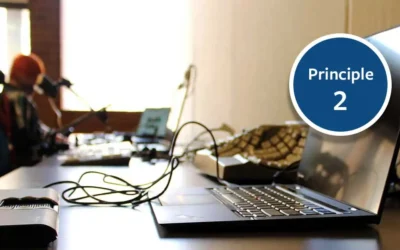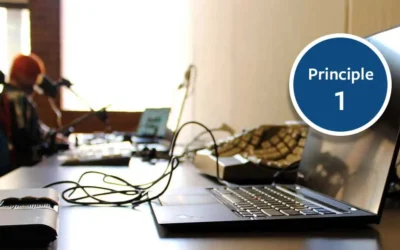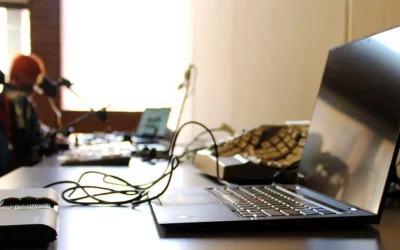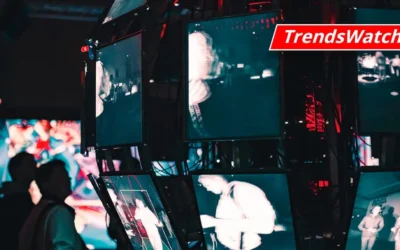A 2019 Recap of Museum Issues

Rachael Cristine Woody
Looking back at the past year’s conferences and the discussions that occur in between professional gatherings, it’s clear we’ve traversed some significant issues. It’s important for us to take stock of developments we’ve surfaced and examine how they may evolve in 2020. This post will review issues discussed in the museum field during 2019. Early next year I will offer my forecast for 2020 based on our 2019 experiences.
Preventable Fires and Controversial Donations
In April we saw the fire of Notre Dame Cathedral and the pouring in of more than $1 billion to help the cathedral rebuild. While Notre Dame is not strictly a museum, it is a historical site and reminded us of another fire seven months prior at the Museu Nacional (Brazil’s National Museum). Both fires could have been prevented had certain safety measures been in place and structural upgrades not been deferred. In addition to the preventable disasters, the swift and staggering donations that made their way to Notre Dame were not without controversy as many specifically questioned why large corporate donors supported Notre Dame when other worthy and arguably more in need human and heritage causes could be helped. And then there’s the Sackler donations controversy. News this spring and into the summer revealed the extent to which certain members of the Sackler family knowingly played a role in the opioid epidemic and subsequent overdose deaths. Several museums have given back or refused Sackler donations while others have not. This has called into question the morality of museums accepting objects or money from unscrupulous persons, with many noting that if museums were to refuse or give back resources from every ethically questionable person it would significantly cripple many.
American Alliance of Museums: TrendsWatch 2019
The trend of human needs mixing and resonating with museum spaces was further explored with the American Alliance of Museums (AAM) 2019 TrendsWatch. Four of the five trends have very human, very current event elements: Self-Care, Decolonization, Homeless and Housing Insecurity, and Truth, Trust and Fake News. While AAM’s TrendsWatch has historically included human elements in their trends, this year in particular tackled tough and divisive topics within the museum field.
#MeToo
#MeToo was a hashtag that began in 2006, created by Tarana Burke to promote “empowerment through empathy” for women of color who were sexually abused. In 2017 the movement gained momentum starting with accusations against Harvey Weinstein and other powerful individuals and lead to countless others disclosing their own experiences. This played out in the museum and historian organizations from 2018 and into 2019 with the National Council on Public History launching a task force in 2018 and continued the conversation (formally and informally) at the 2019 annual meeting.
Salary Transparency
Salary transparency in the museum profession is reaching a fever pitch with many regional and national professional organizations grappling with whether or not to ban job posts that don’t provide a salary range. With many now recognizing that salary transparency is critical to ensuring equal pay, many professionals have become frustrated with organizations being slow to react. These (mostly Twitter) conversations at the AAM meeting and the Adjunct Project, Kimberly Drew’s keynote address inspired the grassroots creation of a salary survey by Michelle Millar Fisher, an assistant curator at the Philadelphia Museum of Art, and her colleagues.
The Changing Definition of Museum
On September 7, 2019 International Council Of Museums (ICOM) were expected to vote on an updated definition of “museum”. Due to significant disagreements among the international community, the vote to adopt the new museum definition was postponed. Many, including Time Magazine, summarized the issue among international museum professionals as “ideological differences”. The museum definition debate is reflective of larger political issues at play in the United States, Canada, and Europe. Historically, museums were viewed as neutral and politically agnostic. However, as we better understand the full ramifications of centuries living in a fundamentally inequitable system, so do we realize that #MuseumAreNOTNeutral.
Conclusion
This year has seen tough issues come to a head and cut deep divisions within the museum field – not unlike our larger socio-political reality. No matter where we fall on the political spectrum, it’s crucial for us to understand the issues at play within our profession and participate in their evaluation. This work and the uncomfortable conversations that result are important because these are the issues that will define the museum profession and the future of museums for decades to come.

Rachael Cristine Woody
Consultant, author, and blogger Rachael Cristine Woody advises on museum strategies, collections management, grant writing and the future of museums for a wide variety of clients. Learn about Lucidea’s Argus solution for museum collections management and download your free copy of Rachael’s new book for Lucidea Press, How to Select, Buy, and Use a Museum CMS.
Similar Posts
Museum Collections Online with Accessibility Principle 2: Operable
Compliance with WCAG Version 2.1 Principle 2: Operable
Museum Collections Online with Accessibility Principle 1: Perceivable
Compliance with WCAG Version 2.1 Principle 1: Perceivable, affecting information published from museum CMS to an online portal; expert guidance
Accessibility Standards for Museum Collections Online
A museum’s compliance with the ADA Title II 2024 update has benefits for its online content and for the museum’s community of users.
Museum TrendsWatch 2024: Digital Twins and Doom Loops & Combatting the Loneliness Crisis
Digital Twins is the construction of a digital surrogate for a person, place, or thing—one of several new concepts and trends in the museum sector.




Leave a Comment
Comments are reviewed and must adhere to our comments policy.
0 Comments